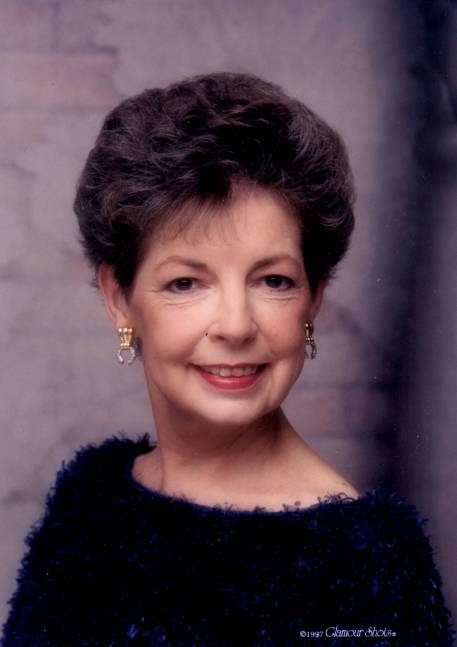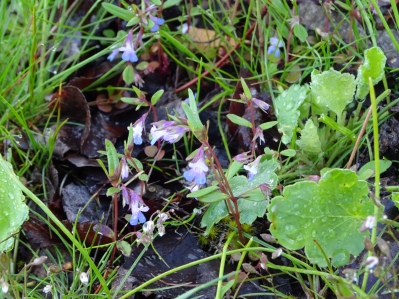The outpouring of responses to my blog about my Mom’s addiction has made me realize how many families are in this same struggle. As I’ve told some of the people who contacted me to thank me for sharing it: it’s been a long road to this place and I’m still learning and faltering and crying and getting back up every day. But, if my sharing the struggle this vulnerably can help other families struggling with the pain of addiction, it’s worth it. So this post is dedicated to all of the families out there – daughters and sons and sisters and brothers and husbands and wives and mothers and fathers – who are struggling with a loved one’s addiction. The cultural norms and pressures around Mother’s Day are to keep it all “sweetness and light” – but the truth of relationships in families is almost always a lot messier and sometimes incredibly painful.
Part of the pain of seeing a loved one struggle with addiction is seeing what it does to their bodies and minds. And my Mom was no exception. Her addiction caused multiple forms of cancer and cirrhosis of the liver. She couldn’t keep food down and weighed only about 80 pounds. She had to have all of her teeth removed and rarely bothered to put in her dentures. She fell down frequently, and often had bruises on her face, arms and legs. She attempted suicide multiple times. She struggled to remember things, make decisions, and interact with other people. Her mood shifted wildly from one minute to the next, and she could be incredibly cruel in her words and actions. And I’ll be honest: there were times when I was deeply embarrassed by her and for her. Times when I didn’t want people to know she was related to me. Times when I wanted nothing to do with her.
She did have two periods of sustained sobriety – lasting about a year each time. One was when I was about 12 or 13 years old. The other was in 1997, when she left her husband (my step-father) for about a year.
Among the collection of letters she wrote to me is one especially poignant and beautiful letter, dated March 22, 1997, during that year when she was clean and sober and healthy. She was the exact same age that year that I am now: 56 years old.
Here’s an excerpt from her letter to me:
“ . . . I look at myself so differently now – in every sense of the word. I’ve really taken charge of my life, but I’m not cocky about it (that’s a seductive trap I must ever guard against). I have no illusions that to go back to drinking “socially” (there’s a deceptive word that’s stricken from my vocabulary!), it would be my own personal destiny with my inner Dr Kevorkian . . . I’m much prettier now than I’ve been in 15-20 years (what an egotistical statement, I know!) – but even in less than a year, the puffiness & blowsiness is gone from drinking. I have CHEEKBONES, good skin tone, my hair’s thicker, I only weigh between 85 & 90, but I’m solid as a rock (work out EVERY AM for 1/2 an hour) – have a 22″ waist, better carriage & everyone asks me what I’ve “done” to myself! I guess I kinda glow with some self-confidence, too . . . Really, Melanie, at LONG last, you CAN be proud of me. And I hope, in time, I can gain back your respect. I KNOW I have your love. You don’t know what a rock that’s been to cling to! I can’t wait to spend some really honest-to-God HONEST quality time with you. We have a lot of ground to cover & a lot of years to make up for. I’m so looking forward to us REALLY discovering each other – not just as mother & daughter (which I honestly don’t know what that’s supposed to be like – bet you don’t either, as NEITHER of us had much to go on by example there) but as friends, and I mean REALLY CLOSE LOVING SHARING friends. I think you’re going to like me a lot. I like me a lot. And I LOVE YOU! Mom.”
And here’s a photo she had taken of herself that year:

So, this Mother’s Day, THIS is how I choose to remember her: as a courageous, honest, beautiful, vulnerable, perfectly imperfect human being, created in God’s image, who, in spite of everything, was still worthy of love and belonging in this world.
Here’s my original post:
 Today would have been my Mom’s 76th birthday. Mom died eight months ago after a 50+ year battle with the grave disease of addiction and, in her later years, significant mental health issues.
Today would have been my Mom’s 76th birthday. Mom died eight months ago after a 50+ year battle with the grave disease of addiction and, in her later years, significant mental health issues.
When I applied for the Baldwin Fellowship a year ago, planning to spend my Baldwin year delving into the research on childhood trauma, its impacts, and healing and resilience, my goals included exploring the ways that growing up with a mom who struggled with addiction had shaped my life, and the multi-generational effects of addiction in my family (my mother, maternal grandmother, and maternal great-grandmother all had the disease of alcoholism), and to focus on healing those wounds. Little could I have imagined what a gift this year of exploration and healing would turn out to be: exactly what I needed, exactly when I needed it.
My Mom had a painful and lonely childhood. Mom was an only child and Grandma was a single mother (Mom’s parents divorced when Mom was five). Due in part to the pain of HER childhood, Grandma wasn’t very good at nurturing or showing love. She, too, struggled with alcohol addiction, and frequently sent my Mom off to stay with relatives while Grandma entertained a string of boyfriends. There are indications that my Mom may have been sexually abused as a young girl by one or more of those boyfriends.
Writing publicly about all of this flies squarely in the face of a central mantra that I grew up with: “Don’t air your dirty laundry.” Not to mention, it feels vulnerable and exposed and scary as hell.
So why am I putting this out there? Well, one of the many things I’ve learned this year is that, as individuals, families, and communities, we NEED to talk about these difficult subjects.
A major reason we DON’T talk about them is shame. Shame researcher Brene Brown says shame needs three things to grow exponentially in our lives: secrecy, silence, and judgment. And research shows that shame is highly correlated with addiction, depression, eating disorders, bullying, aggression, and a host of other ills.
 But the good news is that research also shows that the best way to address shame and to build resilience is to bravely bring these difficult subjects out into the light of day, to acknowledge what’s broken in our lives, to name it, talk about it with trusted others who will offer us compassionate listening, empathy, and grace, and to ASK FOR HELP.
But the good news is that research also shows that the best way to address shame and to build resilience is to bravely bring these difficult subjects out into the light of day, to acknowledge what’s broken in our lives, to name it, talk about it with trusted others who will offer us compassionate listening, empathy, and grace, and to ASK FOR HELP.
We can’t do it alone. (which flies squarely in the face of another core message from my childhood: “Pull yourself up by your own bootstraps.” Turns out, there’s no such thing. That whole “your own bootstraps” thing is hogwash. We need each other!)
What I’ve learned from my study over the past year of the brain science behind trauma and resilience has helped me to better understand why my Mom was the way she was, and how her mother’s and her grandmother’s experiences trickled down through three generations of mother-daughter relationships. It has also helped me to better understand myself, and to be deeply grateful for my own daughter and our strong, healthy bond.
I have a collection of hundreds of letters that my Mom wrote to me over a period of 40 years, and I’ve spent a lot of time this year reading through those letters, seeking to understand her life and our tumultuous mother-daughter relationship.
And here’s what I’ve discovered: She loved me the best she could. She DID the best she could, given the pain and trauma of the things she had experienced, and the resources she had available.
Mom was never able to maintain the single marker of “success” that I wanted so desperately for her to reach, that I judged her harshly for NOT achieving, and, truth be told, that I’ve been angry as hell at her about for my entire life: she never got and STAYED clean and sober. (she had two year-long stints of sobriety, but relapsed hard both times…)
But I’m realizing that she DID live a life that had meaning for her. And in spite of her struggles, maybe in part BECAUSE of them, my Mom was a gutsy, funny, tenacious, unconventional, strong-willed, fiercely independent woman. Or, as she always
told me, “Darlin’, I’m tough as grits.” This is the very definition of resilience.
 One of the things Mom and I shared in common was a great love of traveling to new places. So, I took Mom with me on this three-week trip, sprinkling her ashes in each of the trauma-informed communities I visited. Leaving a little piece of her, and by extension, a little of myself, in communities that have committed themselves to healing, strength, resilience, and grace seemed like a fitting tribute to her life.
One of the things Mom and I shared in common was a great love of traveling to new places. So, I took Mom with me on this three-week trip, sprinkling her ashes in each of the trauma-informed communities I visited. Leaving a little piece of her, and by extension, a little of myself, in communities that have committed themselves to healing, strength, resilience, and grace seemed like a fitting tribute to her life.
In the process, it has helped me to do what one of my heroes, Father Greg Boyle, of Homeboy Industries, suggests as a marker of authentic kinship with other people: to stand in awe at what she had to carry, instead of standing in judgment at how she carried it.
Be at peace, Mom. I loved you the best I could, and I understand now that you did the same.
Melanie, thank you for sharing your amazing story, travels and gleanings of these past weeks. It has greatly inspired and encouraged many of us. Most especially thanks for sharing your personal story which in turn helps us to connect our own stories to the past, in all its beauty, pain and messiness that indeed offers hope and fosters resiliency.
LikeLike
Your writing and sharing from the heart is pure gift. Thank you for being you and blessing us with your personal and professional journey. And may your mother rest in true peace.
LikeLike
Melanie, thanks! What an awesome story of grace and mercy. I know you are all the better and so are we all for you having shared, blessings to you!
LikeLike
Thanks for sharing this, Melanie. It takes real heart to be vulnerable. Sharing stories like this helps others break out of their own shame and speak up.
LikeLike
Terrific! Blessings on you, your family, and your travels wherever they may take you. ❤
LikeLike
Simply Beautiful ! Finding peace is freeing. Glad you trip was a journey toward it.
Thank you for your work for others in this world.
LikeLike
“And here’s what I’ve discovered: She loved me the best she could.” What a powerful and important realization. Thank you so much for bringing us along on this journey of discovery. The insights are important in so many ways and in so many circumstances.
LikeLike